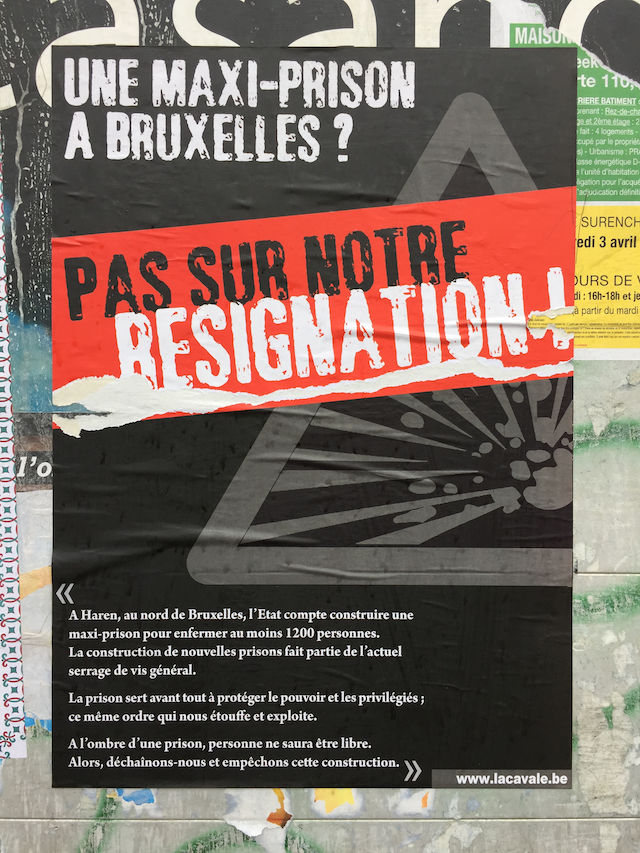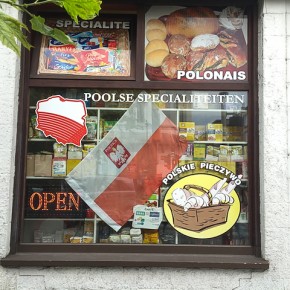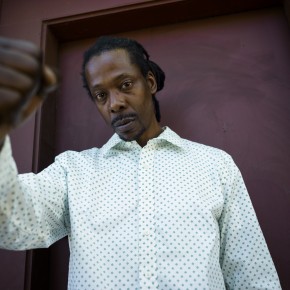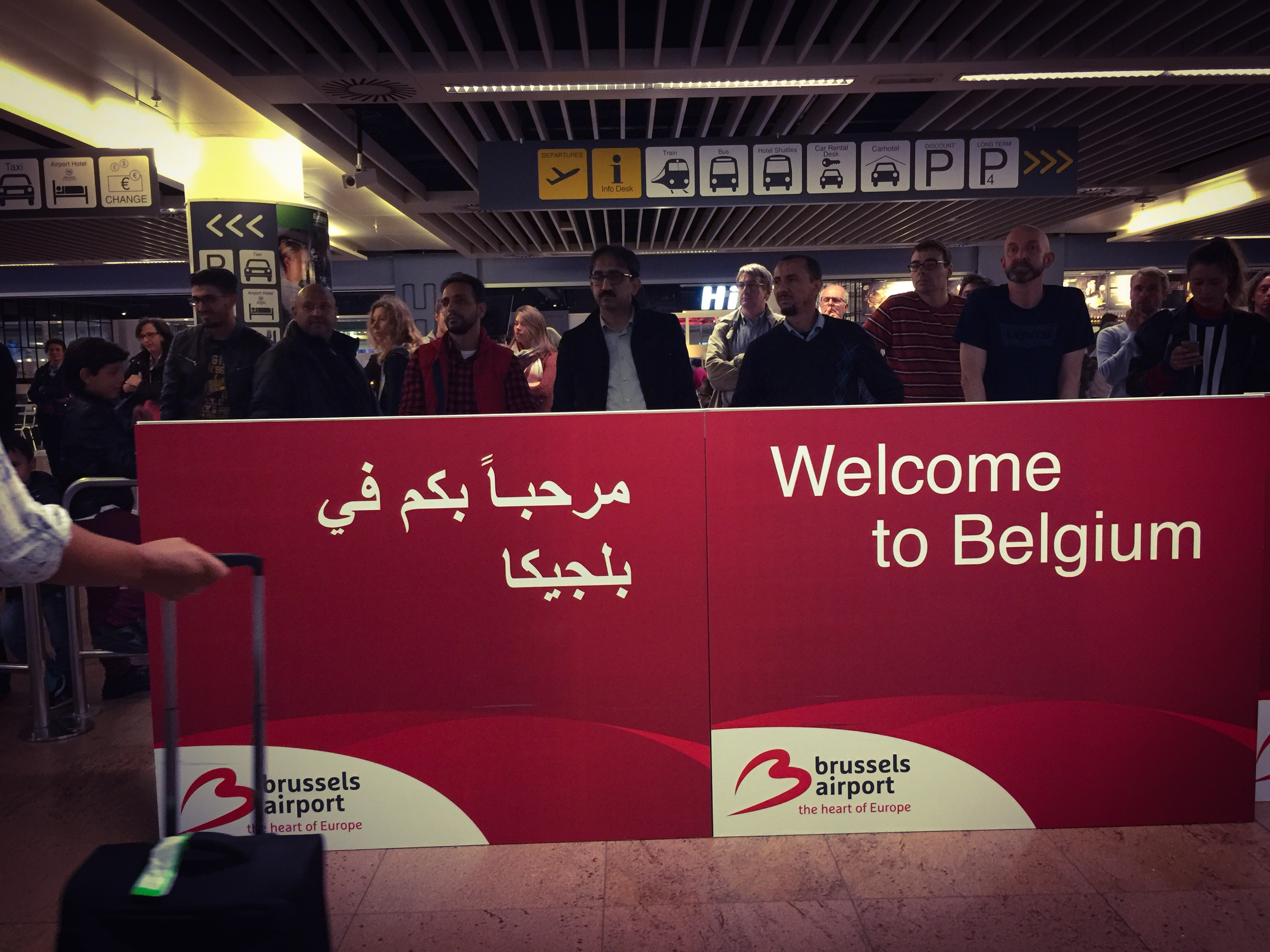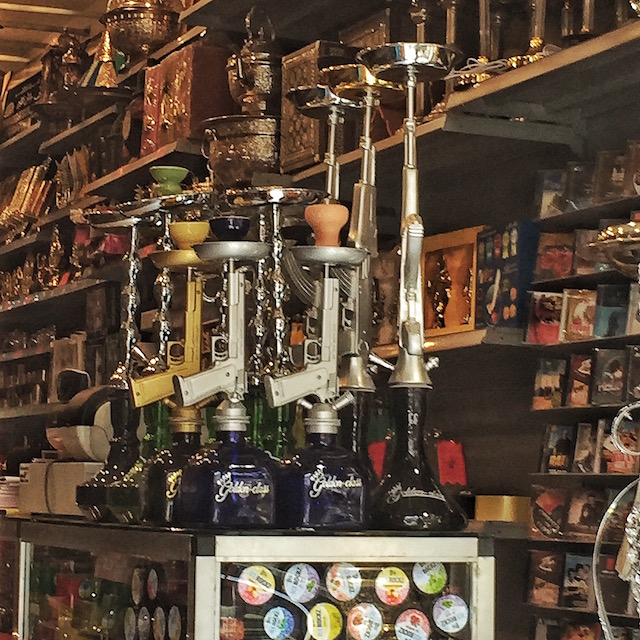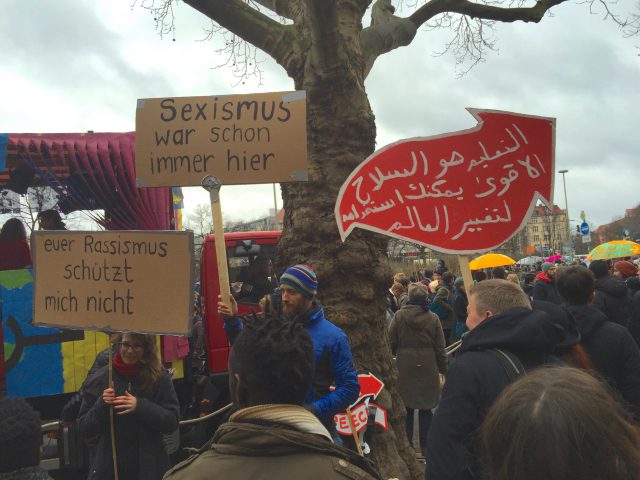Journalism is where you find it. One of the maxims upon which Souciant was founded, the idea was as much about expressing the aesthetic considerations influencing the magazine’s editorial policy, as much as it was an attempt to stake out how different our content is from other online publications.
Though we have most certainly commissioned original work over the last four years, our aesthetic principles have remain equally influential. We publish ‘found’ journalism, albeit readymades, in the form of dense, text heavy political flyers, as we do original essays. The content can be just as challenging.
Take, for example, our flyer translations. Using photos of posters in Milan, Turin, Berlin and Brussels, they double as much as short political essays, as records of political crises in the cities and the countries, they were captured in, which also appeal, to nostalgia for classic punk gig adverts, Situationist street art, and the like.
The flyers also capture our imagination, because as offline, print artifacts, heavy on design, as much as polemics, they fly in the face of the of the digital orthodoxy that physical media are dead, and out of sync with the zeitgeist. Given Souciant’s origins in the San Francisco Bay Area, the irony gets even heavier.
These flyers are a great case in point. Shot in poor neighborhoods in Brussels, they document, as we have before, the European city’s angst about local prison construction. What’s different about about them is their repetitiveness, when viewed together. Is Brussels the prison they’re really talking about?
The ambiguity is refreshing, as much as it is frightening, insofar as the subject is the capital city of the European Union, the one-time antidote to the authoritarian politics of mid-century Europe, that the EU is supposed to represent. Decide for yourself, based on the translations of their text, following the photos.

Against the Mega-Prison
The Belgian State plans to build a mega-prison in Haren, in northern Brussels. This enormous detention camp will be comprised of 1,200 cells, with sections for men, youths and women with children. As the biggest prison ever built on Belgian territory, this project is a big money maker for several companies. The construction of this atrocity, and nine other prisons elsewhere in the country, is emblematic of the society that is imposed upon us. We are more than ever made to understand that the value of our lives is purely economic, that we must slave to make money for the rich and be content to simply “survive”.
The State, which wants to maintain and reinforce its hold on our daily existence, has a wide variety of tools at its disposal: the construction of new shopping centres, urban redevelopment, the installation of loft apartments in poor areas, the creation of pedestrian zones to attract tourists and other consumers, the construction of huge car parks, … are among these tools. But so are the austerity measures, the intensified attacks on the unemployed, the broadening of all kinds of sanctions and fines, the construction of new police stations, the ever increasing number of CCTV cameras and… the construction of new jails like the one planned for Haren.
At a time when the contradictions of the current order are becoming more brutally obvious, the State wants the power to protect itself and crush those who cannot, or consciously choose not to fall into line. It understands that the existence of its power depends on this, and will spare neither money nor effort to shield itself.
But the State’s projects are not invulnerable. They will never be able to resist if every one of us makes the determined decision to stand up and take action. It is time to stop asking the government for favours and start attacking it wherever we can. We must fight against this new mega-prison and the model of society that allows it. We must expose those responsible and show them the art of sabotage and direct action.
We must organise independently, as individuals or in small and agile groups, and throw ourselves into the battle to destroy this project of the State, and at the same time, the idea that it should have the power to determine our lives…

Horror in Business
Welcome to Alcatraz Bar
For months, while some have been cashing in and enjoying the morbid décor of the Alcatraz prison bar at 36 Quai des Charbonnages, on the canal in Molenbeek, others have been dying in captivity, suffering imprisonment and all the atrocities that come with it. In a sick setting composed of electric chair, prison cells and steel bars, the bar offers cocktails with names like “suicide”, “dungeon”, “death penalty”… As if it wasn’t enough to use the fascination of the prison as an economic concept, this bar is also part of the Molenbeek redevelopment plan.
New bars, the “Molenbeek 2014” cultural programme, the new apartments around the canal are transforming the district into an area made by, and for, the rich, where everything is designed to be “clean”, with no trace of poverty or “crime”. These initiatives aim to show that “Molenbeek is a good place to live, it is not dangerous”, to attract a well-off population and get rid of those that refuse to participate. The State calls this “territorial marketing”. First, they restore the district’s image and make it “stylish”, then the developers rush in; rents go up and push the poorest inhabitants even further from the city. This phenomenon is also occurring in other districts of Brussels.
While some “play” prison games, the State is forging ahead with its national plan for the construction of new prisons, the largest of which will be built in Haren, in northern Brussels. This mega-prison will lock up 1,200 prisoners: women, children and men. To sugar the pill, the State is promising more humane prisons that focus on “reintegration”. By humane, they mean that the cell windows have no bars, but instead are made of high security glass that cannot even be opened!
This is a simple smoke and mirrors tactic to keep the population from looking at the prison walls. Using the discourse of protection, the State punishes any so-called harmful people that deviate from or call into question the model of society imposed by the State. This is nothing new: the State has always built jails, and is locking up more and more people for more and more offences.
While some would prefer that we close our eyes, others choose to revolt by directly attacking those behind these projects or those who take part in them (builders, architects, developers…). With a range of actions, we can all disrupt this system…
Photographs courtesy of Joel Schalit. Translations by Samuel White.
